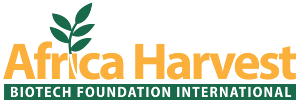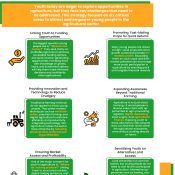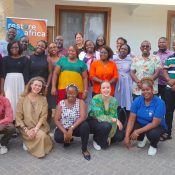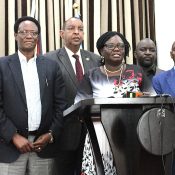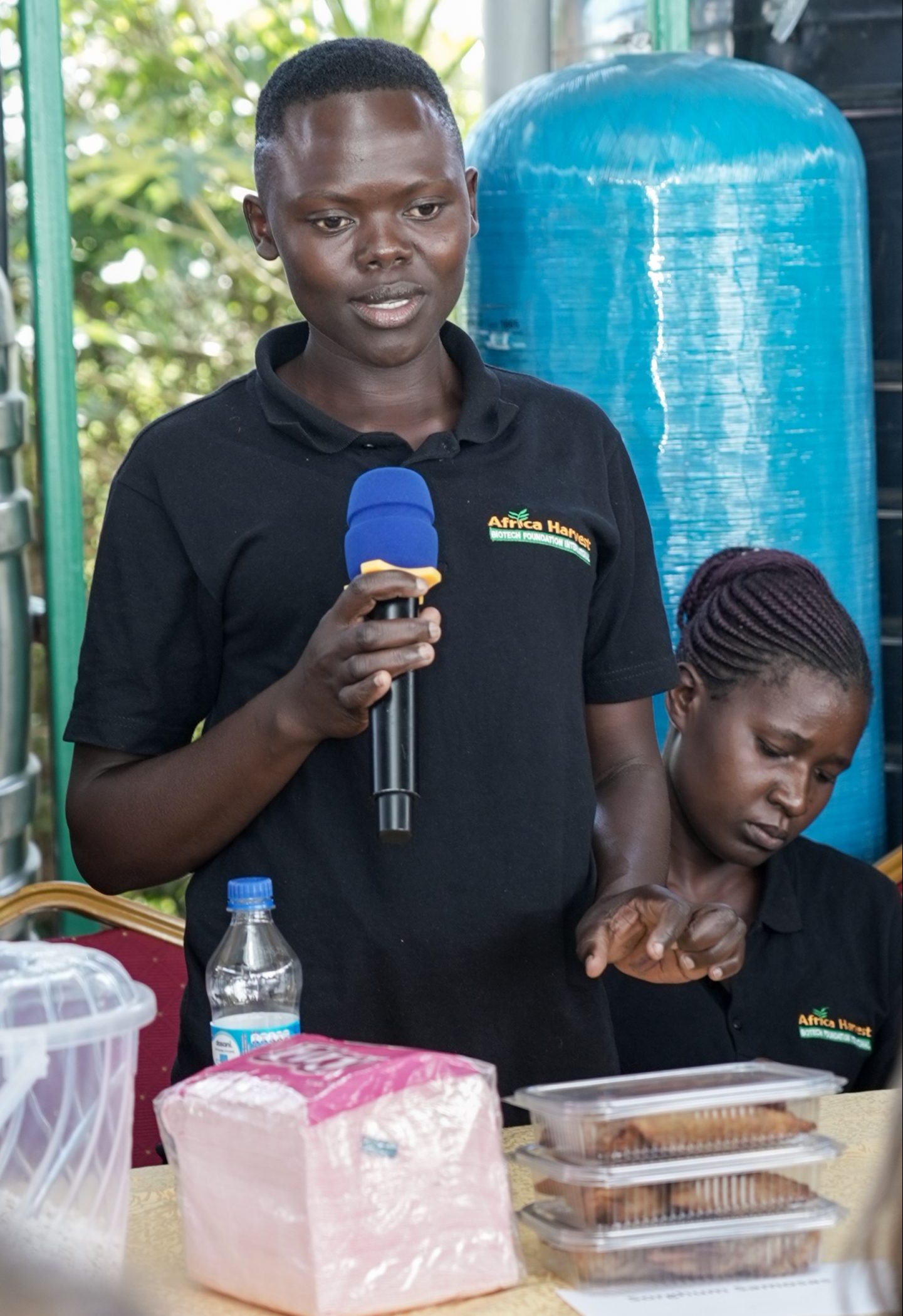
Mastercard Foundation visit to Siaya County
By Hillary Odhiambo- County Implementing Officer (CIO), Siaya County
The Drought Tolerant Crops (DTCs) for Youth Job Creation project is led by the Africa Harvest Biotech Foundation International, in collaboration with the International Crops Research Institute for the Semi-Arid Tropics (ICRISAT) and in partnership with the Mastercard Foundation. This project aims to secure dignified and fulfilling employment for 120,000 young people in rural Kenya. The initiative covers ten semi-arid regions: Taita Taveta, Makueni, Machakos, Kitui, Meru, Tharaka Nithi, Homa Bay, Siaya, Busia, and Elgeyo Marakwet.
It focuses on eight agricultural value chains: sorghum, finger millet, pearl millet, green grams, pigeon peas, groundnuts, poultry, and fish. By enhancing crop yields in drought-affected areas, the project equips young farmers with essential skills and resources, fostering sustainable agribusiness opportunities that contribute to local economies and improve food security. Young farmers participating in the project have reported increased incomes and better resilience to climate impacts.
The project takes a comprehensive approach to enhancing young people’s livelihoods while supporting food security and promoting economic growth in Kenya. As part of this partnership, the Mastercard Foundation visited the Siaya Grains Youth Self-Help Group twice during the year to evaluate their activities and the level of youth participation across various value chain nodes in Siaya County. The first visit took place on April 24, 2024, to assess the group’s involvement in the DTCs 4 Youth Job Creation project.
Shortly after, a second visit occurred, which included broader participation from key stakeholders. This group featured the Africa Harvest County Implementing Officer (CIO), the Chief Executive Officer (CEO), and the Foundation’s Executive Committee led by the President. The meetings were held at the Aqua Burn site in Kisumu City and focused on outlining project progress, partner roles, successes, and challenges. The Siaya Grains group consists of 60 members under the age of 35, including 35 females and 25 males. From this group, eight members were selected to attend the visits, five of whom are young mothers.
The group’s main activities are focused on four key areas of the value chain: grain and seed production, mechanization, aggregation, and value addition. Most members are in
grain production, while some farmers concentrate on seed production and bulking. The group’s access to a cereal thresher not only benefits its members but also allows them to offer threshing services to neighboring farmers, thereby increasing their income. Another significant strength of the group is its dedication to value addition. Members have started producing value-added products from crops such as groundnuts and sorghum. They are also creatively using sorghum stalks to make animal feed through silage-making. Although this value-added venture is relatively new, interest among members in this area is steadily growing.
During the meetings, members presented their diverse value-added products, which included items such as roasted peanuts and sorghum cakes. Participants had the chance to explain their production processes, discuss the economic viability of their businesses, and outline their mid- to long-term goals.
The partners were impressed by the enthusiasm displayed but raised concerns about safety standards, stressing the importance for the youth to ensure their products undergo necessary safety tests. In response, the visiting partners committed to establishing a fund to help groups access low-interest loans, which would assist in business expansion. The participants also raised several challenges that hinder sustainable production. Key issues included inadequate land for planting, limited mechanization, and unpredictable weather patterns dependent on rainfall. The visiting partners acknowledged these challenges and encouraged participants to adopt smart agricultural practices that incorporate climate-resilient techniques.
Ultimately, these visits were crucial for evaluating the project’s impact on farmers and fostering deeper collaboration among partners. The interactions helped build a sense of community, highlighting each partner’s contributions while encouraging participants to embrace innovation in their daily activities, leading to a more significant impact on their livelihoods. The combination of feedback, encouragement, and actionable insights set the stage for a brighter future for the youth involved in the DTCs 4 Youth Job Creation project.
